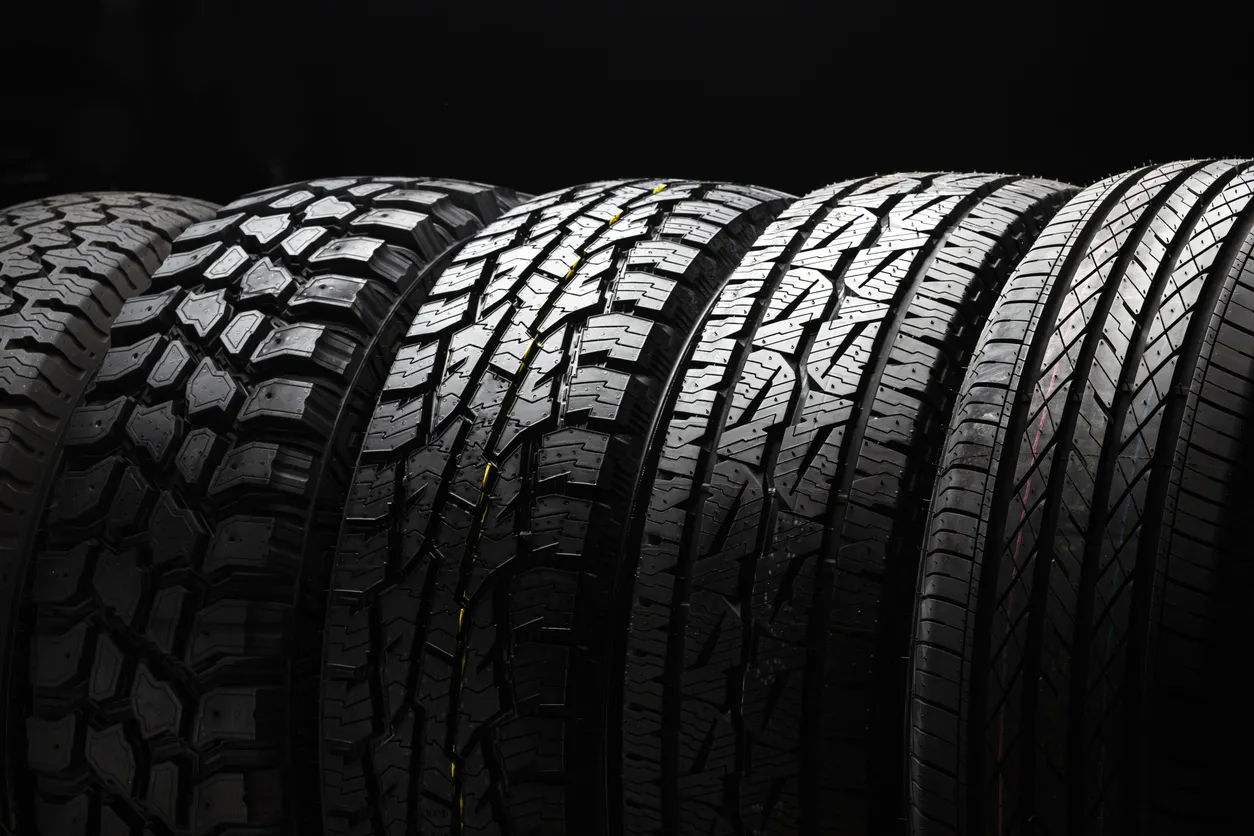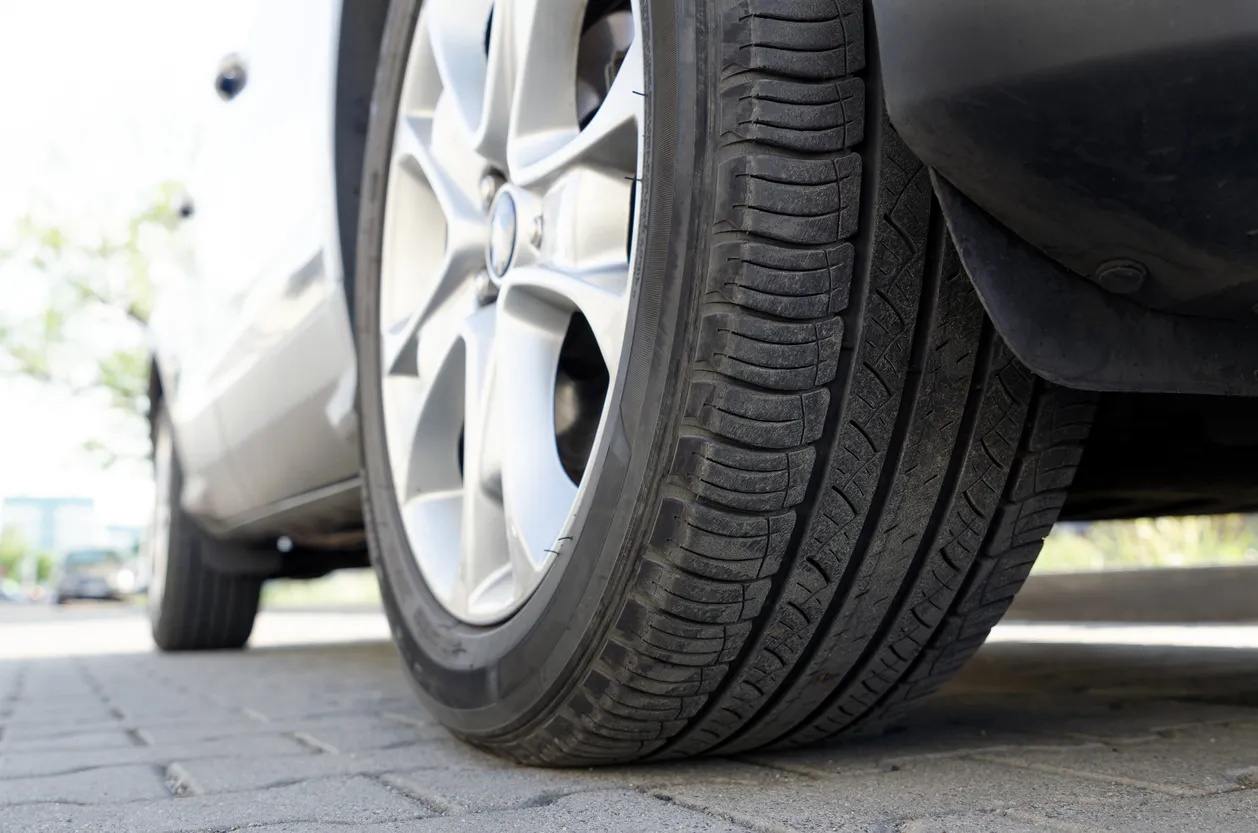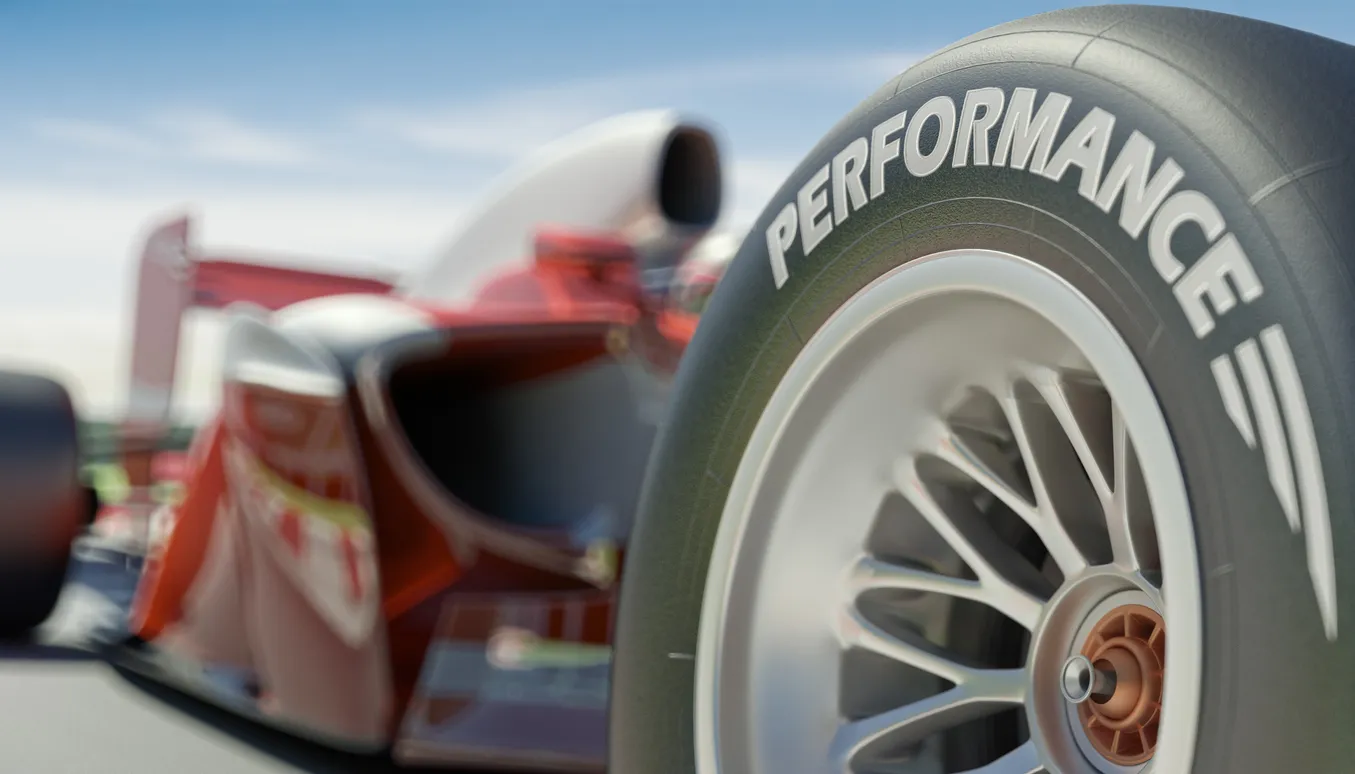What Are the Different Types of Tires?

As a vehicle owner, it's important that you understand the different types of tires available. There are many types of car tires available today, and they each serve a different purpose. Once you understand what that purpose is, you can decide which types of tires are right for your specific needs.
Types of Car Tires
- All Season: Meant for use in all driving conditions.
- Touring: All-Purpose tires with a higher speed rating than all-season.
- Summer: Made for warm-weather and superior in rain.
- Highway: Heavy duty tires for highway driving in trucks and SUVs.
- All-Terrain: Made for mud, dirt, and trail riding conditions. Deep and wide tread.
- Winter: Optimized for winter driving conditions, cold weather, snow, and ice.
- High-Performance: Racing and sports tires. Feature large smooth patches for dry friction.
- Ribbed: Long-lasting highway tires meant to give you a better highway driving experience.
- Run-Flat: Allows you to continue driving for a short distance after a puncture or blowout.
- Eco-Friendly: Engineered to reduce rolling resistance and enhance fuel efficiency.
- Spare/Temporary: Compact, lightweight tires used for temporary replacement in case of a flat.
- 4x4/Off Road Tires: Specifically designed for four-wheel drive vehicles, providing enhanced traction and durability for off-road conditions and rough terrains.
What Types of Tires Last The Longest
Along with considering which tread and rubber compound is best for you because it will give you the optimal grip for your driving situation, you should think about how long each tire type lasts too. Some products, such as ribbed tires, are made to last for extended periods. Others, like winter tires or all-terrain tires, wear out more quickly than standard all-season tires do. Think about how long a tire set will last before adding them to your vehicle to ensure you have the longest lifespan you can for your tires, given the situation.
All-Season Tires
 These types of tires are the jack-of-all-trades in the tire world. They work for every driving situation but aren't the best for any of them. All-season tires are the types of car tires that come on new vehicles because they work for everything, but you can do better for specific situations.
These types of tires are the jack-of-all-trades in the tire world. They work for every driving situation but aren't the best for any of them. All-season tires are the types of car tires that come on new vehicles because they work for everything, but you can do better for specific situations.
Touring Tires
Just like all-season, touring tire types are designed for use in most driving situations. They work well for dry or damp roads and can be used on dirt and even when traveling through some snow. The main difference with touring tires is that they offer a higher speed rating than all-season, making them good for drivers that like to go fast.
Summer Tires
As their name suggests, these types of tires are made for warmer climates. If you never have to deal with freezing weather, you can get better value from a pair of summer tires than you can with something more generic, like all-season. Summer types of car tires are more effective when driving through water and when driving on dry road surfaces. The tires feature a rubber compound that is durable and designed to hold up well at higher temperatures.
Highway Tires
A set of highway tire types is built to keep heavy vehicles smooth and silent while traveling at highway speeds. These types of car tires feature special treads that are meant to minimize vibrations while traveling at high speeds. These tire types work during all the different seasons, and they are better at keeping your ride quiet at high speeds.
All-Terrain Tires
These types of tires are built for trail riding and going through dirt and mud. The tires feature deep and wide treads that will dig into soft terrain to offer a reliable hold. These types of tires rely on a complex tread pattern to do their work, and they feature such an aggressive tread design that you can rely on it to grip dirt, grass, mud, and other soft surfaces reliably. These tire types are not made for regular road driving conditions and should be avoided on the highway whenever you can.
Winter Tires
These types of car tires are crafted to give you the best grip and traction at extremely low temperatures. The tires are made from a softer rubber compound that remains pliable at low temperatures. Many winter tires also come with studs or the option to add studs that bite into ice. If you use these tire types, it's important to be aware that studs aren't allowed on many different types of roads. Winter tires are the safest for you to use when driving in snowy and icy conditions.
High-Performance Tires
 Just like all the other types of tires on this part of the list, performance tires are a specialty product meant for racing and driving at high speeds. These tires feature larger flat sections and lots of smooth patches that take advantage of smooth driving surfaces best. If you will be driving at high speeds on mostly dry roads, you can rely on high-performance tires to help you maintain your grip and remain safe as you drive around. If you want to drive fast and be confident while doing it, make sure you have the right tire type for the job.
Just like all the other types of tires on this part of the list, performance tires are a specialty product meant for racing and driving at high speeds. These tires feature larger flat sections and lots of smooth patches that take advantage of smooth driving surfaces best. If you will be driving at high speeds on mostly dry roads, you can rely on high-performance tires to help you maintain your grip and remain safe as you drive around. If you want to drive fast and be confident while doing it, make sure you have the right tire type for the job.
Ribbed Tires
If you do a great deal of highway driving, you can get ribbed tires that are meant to allow you to drive further overall. Standard tires wear out quickly if you're driving on the highway all the time. That's why ribbed tires exist. These tire types are decent in most driving conditions, and they give you a longer lifespan than what you can get from basic tire options.
Spare Tires
Some vehicle owners have full-sized spare tires, but those are generally all-season tires. Many cars come with a specialty tire that's made to serve as a replacement if any of your tires get flat while you drive. These spare tire types are smaller than standard tires and are made for a limited amount of driving. Equip your vehicle with one of these spares so you can drive to the nearest tire shop to get a replacement. Just be careful to avoid driving on the spare tire for too long, or it will fail.
Run-Flat Tires
These tire types are designed to maintain their shape and functionality even after a puncture or blowout, allowing you to continue driving for a short distance at a reduced speed. Run-flat tires have reinforced sidewalls that support the vehicle's weight, preventing the tire from collapsing when air pressure is lost. This feature eliminates the immediate need for a roadside tire change, enhancing safety and convenience, especially in hazardous conditions or remote locations.
Eco-Friendly Tires
These types of car tires are engineered to reduce rolling resistance, which enhances fuel efficiency and lowers carbon emissions. Eco-friendly tires are constructed using innovative materials and advanced tread designs that minimize energy loss as the tire rolls, resulting in better gas mileage for your vehicle. Additionally, these tires often incorporate environmentally sustainable materials, such as natural rubber and recycled components, reducing their overall environmental impact.
4x4/ Off Road Tires
4x4 or Off Road Tires are specifically designed for vehicles with four-wheel drive (4x4) capabilities, providing enhanced traction and durability for off-road conditions and rough terrains. These types of tires are built to deliver optimal performance in both on-road and off-road environments, offering a balance of toughness and comfort. While both all-terrain tires and off-road tires are designed for challenging conditions, all-terrain tires offer a balance of off-road capability and on-road comfort, whereas off-road/4x4 tires are optimized for maximum traction and durability in extreme off-road environments.
It definitely takes time to learn how to understand what the different types of car tires are for, once you know about the different options, you should know which to choose for your specific situation. Think about how you drive most of the time, and which vehicle tire types are the right option for you for that reason. Once you do this, you will know exactly what product you should be relying on all the time. It's easy to choose the right product for your needs, but only if you do the research. Make sure you know what tires are right for you, and then add them to your vehicle to keep yourself happy and safe.
Important Considerations When Choosing Tires
When you are ready to purchase new tires, there are a few things you should consider to ensure you make the best decision for your car. Here are four important factors to keep in mind:
Size: The first thing you need to know is what size tires your car requires. You can find this information in your car's owner's manual or by looking at the placard on the doorjamb or inside the fuel door. Once you know the size, you can begin shopping for tires.
Type: Several types of tires are available, each designed for specific purposes. For instance, all-season tires are a good choice for most drivers, providing good traction in various conditions. However, if you live where winter weather is harshs, you may need to get a set of winter tires. These tires are designed to provide better traction and grip on icy and snowy roads.
Brand: Many tire brands are on the market, so it's important to research to find one that suits your needs and budget. Reviews from other drivers can be helpful in this process. Once you narrow down your choices, it's also a good idea to consult a tire professional to get their expert opinion before purchasing.
Budget: Tires can range in price from $50-$200 or more per tire, so it's important to know your budget before you start shopping. It can also be beneficial to compare prices from different tire shops to find the best deal. If you need help determining a budget, your tire professional can also assist with this.
What Kind of Tires Do I Need?
As a vehicle owner, one of the most important questions you can ask yourself is what types of car tires are right for you. The type of tires you should get really depends on how you use your vehicle, which is exactly what you should be thinking about when you evaluate your options. If you drive on different terrain all the time, something flexible like all-season tires are best. If you drive in warm weather all year, you could get away with summer tires.
One of the most important things you can invest in is high-quality tires. Tires are what keep your car moving, so it's important to have ones that are in good condition and will last a long time. Here are some benefits of investing in high-quality tires:
- They Provide Better Handling
- They're More Durable
- You Won't Have to Replace Them as Often
- They Improve Fuel Efficiency
- They Offer a Smoother Ride
There are different options for all the conditions you'll encounter while driving, and adding the most specialized tire that will work for your situation will give you the best traction and results.
FREE Vehicle Search
- Accidents
- Problem Checks
- Title Records
- Recalls
- Values
- Specs
-
InfoPay, Inc. (dba GoodCar) is an Approved NMVTIS Data Provider
-
-












































